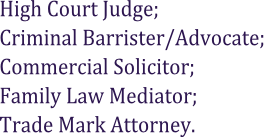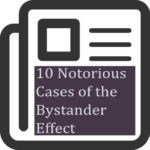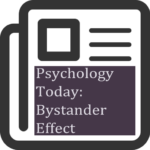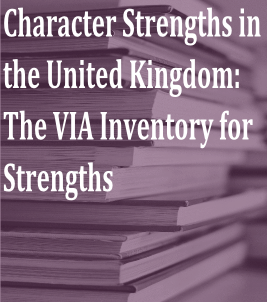![]()
Character is made up of a range, variety and intensity of virtues; the character strengths needed to live a life of human flourishing. Recognition that personal character influences our moral decision-making is part of the reason for the recent revival of interest in Aristotelian virtue ethics, particularly in the study of professional ethics. In this section, you will reflect on your own character strengths and how these personal virtues may help you as legal professionals.
Watch this film about the importance of integrity, both professionally and personally, as an example of a character strength.
The below presentation provides details of the typology of virtue that the Jubilee Centre has developed, as well as short definitions of the virtues.
![]()
![]()
The VIA Survey of Character Strengths is a well-known and well-used validated survey which provides participants with a  ‘Character Strengths Profile’.
‘Character Strengths Profile’.
Follow the link to complete the VIA survey.
![]()
Think of an event in your life where you have been required to use some or all of the character strengths in your top 5 on the VIA survey. How did you use those strengths? Did the character strengths clash or compete with one another? Discuss on the discussion boards.
How did you use those strengths? Did the character strengths clash or compete with one another? Discuss on the discussion boards.
![]()
The following websites are useful resources to discuss bystander effect:
Watch the video. Consider the extremes of behaviour demonstrated by the people in the video.
Answer the following:
How could the outcome have differed if the public had displayed virtuous behaviour? Which virtues would be required to act virtuously?
What barriers do you think prevented the members of the public from acting in a virtuous way? How could these barriers have been overcome?
Think of an example where you or someone you know had the opportunity to act virtuously but failed to do so and chose an ‘easier’ option.  Why do you think you acted in this way?
Why do you think you acted in this way?
Discuss with your fellow learners.
![]()
Consider the following roles in the legal process:

Review the personal character strengths that you encountered in Activity 1 of Unit 2.1. Highlight four character strengths that you believe are of critical significance to the above roles, and explain the rationale behind your choices. Please use the following template. You can work in pairs or on your own.
![]()
Robert. E. McGrath – This study updates Park, Seligman and Peteron’s work, using a sample of 1,063,921 adults who completed the Values in Action Inventory-Inventory of Strengths online between 2002 and 2012; considering those character strengths most highly regarded by participants. | Charles Bryan, Allison Babelay – This paper argues that building character might be enhanced by promoting among students, residents, and faculty a four-step method of reflective practice that includes (1) the details of a situation, (2) the relevant virtues, (3) the relevant principles, values, and ethical frameworks, and (4) the range of acceptable courses of action. | P. Alex Linley et al., – This paper presents data on the character strengths of a large UK sample of participants who had completed the VIA Survey. The discussion addresses potential limitations and suggests pertinent directions for future research. |












